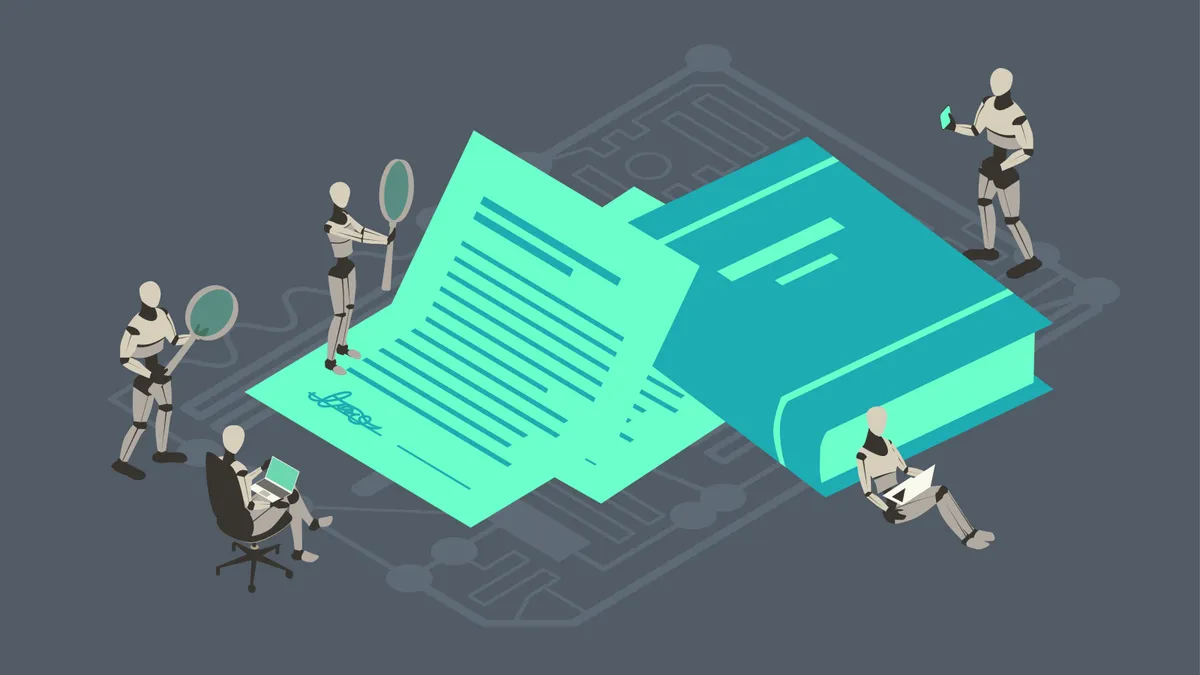New York attorney Steven A. Schwartz has become a well-known name in the legal community after using ChatGPT for legal research and not realizing it generated six fake cases that were later cited in a legal brief.
In seeking leniency from a federal judge who is considering sanctions, Schwartz and his lawyers have admitted he was unfamiliar with the OpenAI chatbot powered by large language models.
But a recent filing from his attorneys also sheds light on several other factors that may have contributed to Schwartz and his law firm, Levidow, Levidow & Oberman, unexpectedly entering the national spotlight.
These additional issues included Schwartz’s limited experience in federal court, his lack of knowledge of bankruptcy law and his law firm’s limited legal research technology options.
This information was disclosed by attorneys from Frankfurt Kurnit Klein & Selz, who are representing Schwartz in a Southern District of New York case pending before Judge P. Kevin Castel.
Focus on state cases
Schwartz has been practicing law in New York since 1992 and has worked his entire career for Levidow, Levidow & Oberman, according to his attorneys.
He practices in the areas of workers’ compensation and personal injury, representing injured claimants under the New York workers’ compensation law. As a result, his practice is mainly limited to state court and administrative bodies.
In that vein, Schwartz represented a man named Roberto Mata against Colombian airline Avianca in a personal injury case originally filed in New York state court in the summer of 2020.
Avianca filing for bankruptcy stayed the state court action, and the parties agreed to discontinue the action so it could be re-filed following the conclusion of Avianca’s bankruptcy.
Case moved to federal court
After Mata’s case was refiled in early 2022, it was moved by Avianca to federal court in the Southern District of New York.
Schwartz is not a member of the Southern District’s bar and rarely appears before the court, his attorneys wrote, so he could no longer appear as the attorney of record for the Avianca case.
His Levidow, Levidow & Oberman colleague Peter LoDuca took on the attorney of record role.
However, Schwartz “continued to work on the matter and handle the substantive legal research and writing,” according to his attorneys.
Bankruptcy issues
Once the case was in federal court, Avianca moved to dismiss the plaintiff’s claims as time-barred by the two-year limitations period set by the Montreal Convention.
Schwartz worked on the affirmation component of his client’s opposition to the motion to dismiss.
As part of his drafting work, Schwartz’s attorneys said he “attempted to perform legal research on the interplay between U.S. bankruptcy law and the Montreal Convention, an issue with which he was not familiar.”
“Mr. Schwartz, a personal injury and workers compensation lawyer who does not often practice in federal court, found himself researching a bankruptcy issue under the Montreal Convention 1999 (the “Montreal Convention”),” his attorneys wrote.
Technology limitations
The legal research component of Schwartz’s work was where he made the mistakes that have brought him widespread notoriety.
His attorneys wrote that Schwartz’s firm uses Fastcase as its primary online legal search tool and makes it available to all firm lawyers.
They also said that Levidow, Levidow & Oberman “does not maintain a subscription to Westlaw or LexisNexis, which are much more costly.”
As Schwartz prepared to conduct legal research on the Mata v. Avianca case, he thought he would be able to access both state and federal cases in New York using Fastcase.
“However, when Mr. Schwartz attempted to conduct research on Fastcase for this matter, he was unable to access the federal database,” his attorneys wrote in the filing. “The firm later learned that because of a billing error, the firm’s Fastcase access to the federal case database had been inadvertently deactivated.”
In a footnote, Schwartz’s lawyers write that the Fastcase limitation prevented full-fledged searches for federal cases.
“Because Mr. Schwartz’s Fastcase access was limited, he turned to ChatGPT to conduct additional legal research,” his attorneys wrote.
Other options
Schwartz’s research using ChatGPT was included in a document LoDuca filed with the court to oppose Avianca’s motion to dismiss the case.
In an affidavit filed in recent weeks, LoDuca wrote he had no reason to doubt the authenticity of the case law produced by Schwartz’s legal research.
However, the filing included six cases that were later labeled “bogus” by the judge.
Schwartz has since acknowledged it was a mistake to cite cases from ChatGPT without verifying them via an independent source and has apologized for his actions.
Schwartz’s attorneys said he could have taken other steps rather than using ChatGPT, a technology he was unfamiliar with, to conduct legal research.
“Instead, if the firm’s Fastcase subscription was too limited for what was needed, he could have either asked the firm to purchase additional resources or taken advantage of the Westlaw access at one of the bar association law libraries,” Schwartz’s attorneys wrote.
They noted that Schwartz’s law firm has since rectified the Fastcase issue so that its lawyers can again fully access state and federal court databases.
“The firm has taken and is taking a series of remedial steps: obtaining better research tools for its lawyers; implementing firm-wide CLEs in technology; imposing policies against using AI tools without checking, and more,” Schwartz’s attorneys wrote.
Sanctions
Overall, Schwartz’s lawyers have argued neither he nor the firm should be sanctioned because Schwartz’s actions were not conducted in bad faith.
“Mr. Schwartz could not reasonably have been expected to know that ChatGPT would make up entire cases and then continue to lie to him even after he questioned” the results, they wrote.
“Although this may evidence poor judgment, it does not rise to the level of subjective bad faith or willful blindness,” Schwartz’s attorneys added.
Judge Castel held a hearing about sanctions last week and is expected to issue a written decision in the near future.


















